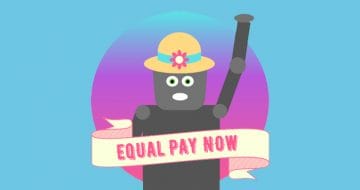250 times more likely to see ‘chairman’ than ‘chairwoman’

An analysis of nearly 4,000 legal contracts has shown nearly two-thirds (63%) were “gender biased”.
Data gathered and analysed on randomly selected contracts from 2017 until June 2022 revealed that ‘himself’ is 88% more likely to be used than ‘herself’, while ‘chairman’ is 250 times more likely to be referenced than ‘chairwoman’.
However, there is evidence of gender neutral terms being on the rise. ‘Salesperson’ is now more than twice as common as ‘salesman’ or ‘saleswoman’, while the usage of ‘chair’ or ‘chairperson’ has also doubled in the past five years.
Rafie Faruq, CEO of Genie AI, the open source legal template library which conducted the research, said:
“Bias and prejudice begins in the background — it doesn’t have to be a blatant act, but is embedded within the very fabric of our language. By stamping that out of legal contracts, we aim to progress the legal industry into a fairer and more accessible future. So far, court interpretation of gender-neutral pronouns seem encouraging, therefore we will continue to take bold steps to transform the way law is done, whether that’s ensuring our contracts are gender neutral or open sourcing our template library.”
The relationship between gender and language is complex. The age old chicken-and-egg question of whether language affects our perception of gender roles in society or merely reflects them has dogged academics for many years.
Oxford Uni sociolinguistics professor Deborah Cameron explained to the BBC last year:
“It’s very difficult to disentangle them. There is good evidence that changing language in certain areas does change people’s perceptions — there’s a lot of work that shows if you present children with bits of text that are about occupations, and you use an inclusive form to name the occupation, they’re more likely to say women can be successful or that the job is suitable for them. If you give them the generic masculine word, they’ll see that women can’t be successful.”
But although research suggests that gendered languages (like Spanish) experienced higher average gender inequality, genderless languages (like Mandarin where nouns and pronouns don’t have a marked gender) are not necessarily an improvement.
According to the author of this 2011 research Jennifer Prewitt-Freilino, genderless language can simply cause people’s minds to jump to the masculine — speakers are more likely to assume a ‘chairperson’ refers to a man. For this reason, natural gender languages (like English which has gendered pronouns (he/she) but genderless nouns) were found to experience the most gender equality.

